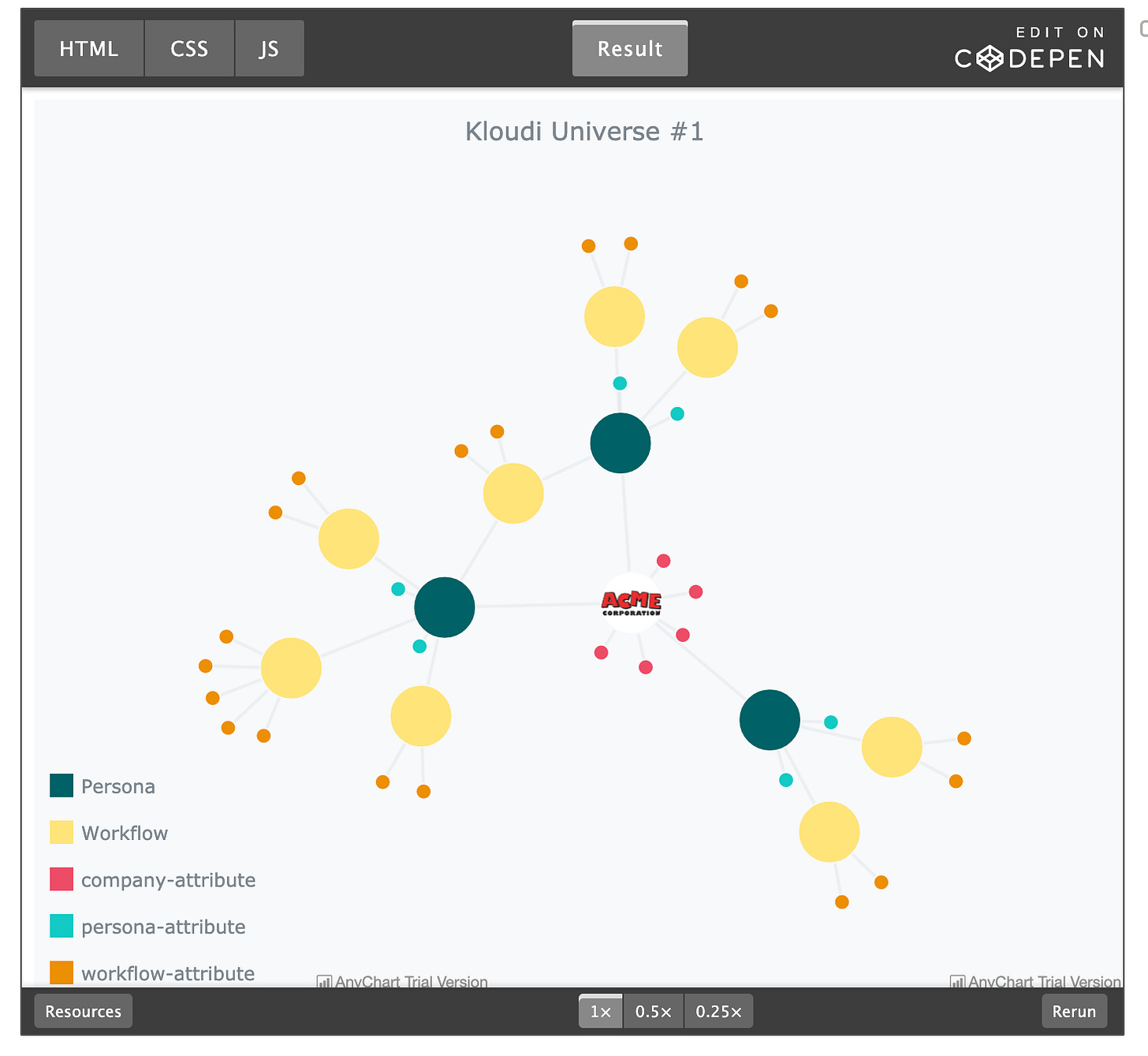🔬Modelling Entropy in the Universe
Taking inspiration from Marvel and Thermodynamics, Sneh and I present the v1.0.0 of our entropy model
Our newsletter covering an introduction to the Elements in the Universe of Technology talks about the infinity stones or basic elements that define Kloudi’s Universe. With this edition we takes a deeper dive into how these elements behave and interact and consequentially make up our universe.
However, we have added images in this newsletter since we can’t embed interactive snippets on Substack. For this reason we have incorporated stills of these interactive graph. For a complete experience please visit this link.
🕹 Model Version 1.0.0
This is insight into our version 1.0 of the universe and its interactive elements, with changing technology landscapes this is ever evolving and expansive.
Kloudi summarises any interaction and its outcome involving a developer in an engineering ecosystem. An N-Dimension System by using cartesian product helps us plot it and solve for this entropy.

The more attributes we add to every parameter the more we understand about the state of that parameter in the flow of things. The measure of productivity is how much time we have saved by traversing along the direction of movement with every cartesian product. We'll talk about it in later sections of this document.
🎍Examples
There are two things we aim to bring out with these examples;
The ability to visualise the scope of Kloudi's universe and how this universe can be expansive.
Narrow down on a focus zone on a single scenario and nail down interactions and feedbacks from our users.
🌌 Example #1 - How big is the universe?

In this example we only show a part of the model with 3 entities. The motivation behind this example is to show the breath of the universe and how deep we can go with only one organisation. This is to help us visualise our users / customers and the tasks they perform on a day to day basis.

🧩 Example #2 - How does a workflow fit in the Universe?
The goal of this example is to narrow down on the scope of problem that we want to tackle at our current stage. Currently we have fixed the the first 2 entities of the model - Company & Persona.

Now with the first 2 entities fixed we'll focus our energies on how the model helps us to understand and channelize the entropy. We'll be separately modelling on Workflow, Source and Entity here.

As we can see from the graph above, to achieve an outcome from a workflow a Persona has to interact with multiple tools and build mental models to transfer data for initiation of another workflow or perform an action to finish the current workflow.
In this example we show two ways to discover errors(source of Entropy) in the system - discover-bugs & monitor-errors. Different teams (cluster of Personas) use different sources and abstract their own interpretation of Entities to achieve outcome from a Workflow, however in the course of daily activities such workflows may only acts as the starting point of another workflow like track-bugs.
🤔 What do you think?
While the the above two examples lay ground for multiple permutations and combinations of entities further interacting to become workflows, we wish to leave it to you the reader to imagine the universe you can build around it. Imagine setting up your own entities and workflow constellations. The depth and breadth is immense. With this we leave to you take some time and rewind back and replay the mathematical content we have shared with you this week.
Our next newsletter will be far more simpler as we cover what this universe riddled with entropy will look like if channelised through Kloudi. Feel free to share with us your imagination of your workflows and entities and their interactions on 🧠 Developers’ Brain. We might feature a few in our next newsletter.
Appendix
A more interactive version of the letter can be founder here.
As usual, to those who stumbled upon this newsletter first here is the link of our newsletter for you to catch up on our previous post and any upcoming stories from us.

